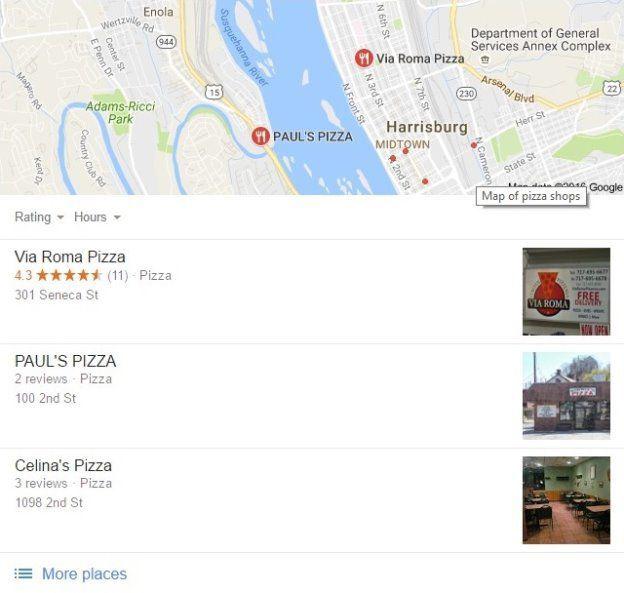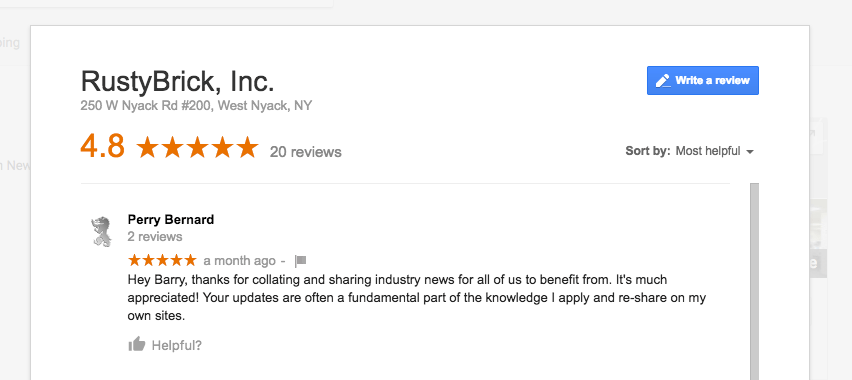SEO is a multifaceted and long-term investment in your online business. It’s recommendable to have different but interlinked SEO strategies for each location that you service to get the most results. Let’s dive in and look at the best local SEO strategies for multiple locations that you should invest in today.
1. Use one domain instead of multiple domains
As an entrepreneur with a business that operates in different locations, the idea to create independent domains for each zone may be irresistible. Experts are against this idea as each domain will be indexed by Google separately.
Digital marketing efforts such as link building will only affect the domain you apply the measures on, thereby limiting your ROI (return on investment.)
Therefore, it’s recommendable to create one professional website and then create custom pages for each area you service. Doing so will ensure that your website ranks highly irrespective of the geographic location of potential customers.
Consequently, apart from the contact and about us page, we recommend creating unique content for each location to better resonate with the target audience. Go the extra mile and develop subdomains to manage them efficiently.
That way, you will save time and resources that would have been spent optimizing and managing multiple websites.
2. Analyze the market and your competitors
Carry out extensive competitor research and analysis to know which keywords they rank best for and the sites they use to get backlinks. When creating a local campaign, examine the topics ranked highly in SERPs and embark on publishing better content to outrank the competitors.
Be sure to budget accordingly to avoid plunging your business into financial turmoil. For example, if you have a $1 million content marketing budget, you can go for the larger markets in New York and Los Angeles.
However, if you are on a tight budget, start by focusing on the small markets. As your business scales up, you will have enough capital to venture into the larger markets.
When assessing the market, your top goals should be ease of ranking at the top and attainable organic traffic.
3. Research dollar budget level VS population
The population in every city varies, and this directly impacts other essential factors such as buying cycles or trends. This information will help you budget and know which products to focus on when creating content. Knowing each location’s market trend eliminates guesswork and allows you to plan for your campaigns better.
4. Create a local SEO linking strategy
By now, you probably already know that Google relies heavily on backlinks when ranking websites. It is prudent to develop a local SEO linking strategy that is highly specific and locally targeted to a particular city or state to rank at the top for the target keywords.
Before we proceed, it’s important to note that ranking in organic search is entirely different from ranking in local search results. The strength and relevance of your website ranking signals for a specific location will directly impact the overall performance of your business.
Local directories can help you get quality links for different locations fast and without spending thousands of dollars. Links in websites whose URL has the city name and renowned local newspaper or magazine websites will also give your brand the punch it needs to become an authority in your niche.
Be sure to adhere to all Google link-building strategies to avoid challenges down the road. For example, confirm that the websites that link to your website are reputable, relevant to your niche, and have decent domain authority.
5. Conduct on-page optimization
All the above tips will not deliver optimal results if you don’t invest in on-page optimization. The local content should be highly optimized with keywords that the target audience uses to search for information related to your brand.
For example, if your target keyword is “New York financial consultants,” make sure that the title tags, URL, meta keywords, internal links, meta description, H1s, and H2s in the content are optimized with this keyword phrase. These are easy wins for your SEO, so make sure to include them.
6. Leverage Google My Business listings
Google My Business is one of the free innovations by Google that is meant to help local businesses thrive. If well set up, your business details will be displayed in Google Maps for searches in the locations where you operate.

If you are yet to claim your listing, go ahead and create a Google business account and manually add all your business locations. Confirm that the details are accurate to avoid misleading potential customers.
Include high-quality images of your products to grasp the attention of the target customers. You could also add group photos to make your listing even more personal and alluring.
A bulk location management tool will come in handy when importing and managing new locations. Also, save time by using bulk verification tools to validate them.
7. Focus on getting local reviews
79% of online customers consider customer reviews as personal recommendations. 59% of customers consider Google the most popular online review platform.
Concisely, reviews are social proof that will help you generate leads seamlessly. Don’t shy away from asking customers to give feedback about your product or service. Take time to respond to both positive and negative reviews. Professionally replying to the latter and offering solutions to the complaint will show other potential customers that you genuinely care and want them to get the utmost value for money.

Go a step further and post some of the local reviews on the dedicated local pages on your best to get more local traffic and qualified leads. This hack will demonstrate to the customers that you are the most reputable and reliable service provider in the area.
8. Don’t forget structured and schema markup
Schema.org and structured data markup will make it easy for Google crawlers to understand your content accurately. You don’t need to have experience creating the two; there are many structured data generators that you can use.
Google structured data testing tool to test the effectiveness of your site’s structured data. All you have to do is paste the code or URL to run a complete check of your website in search of errors. It’s also designed to validate microdata formats, JSON-LD, and RDFa.

